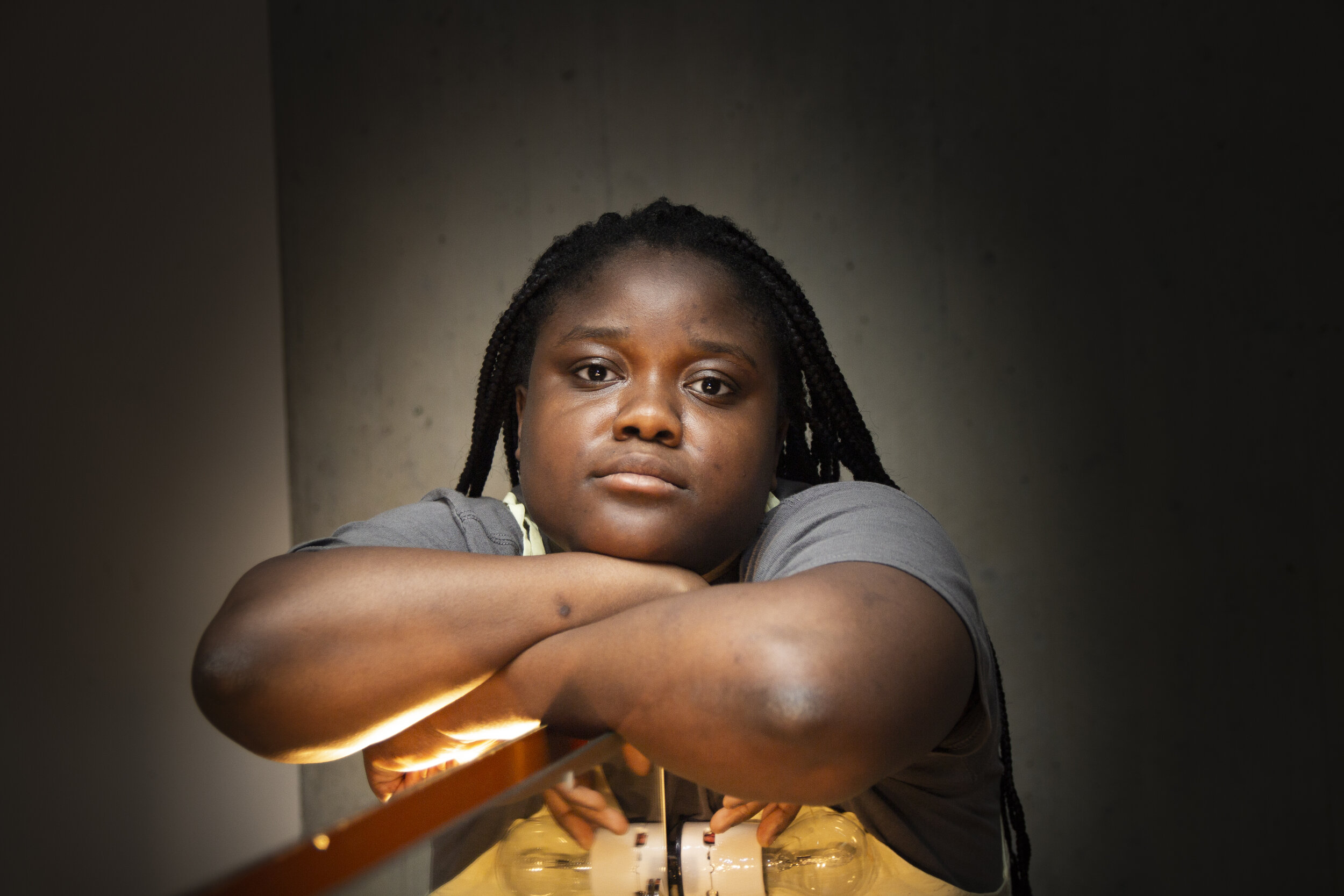Kamara? Who dat?

Kamara? Who dat?
If one is to mention one artist that has impacted the start of this semester, it’s hard not to mention Kamara. As the first artist preforming on Samfunnet for 1,5 years (and no, UKA does not count) as well as contributing to the opening of the Veterinary Building, Kamara has without any doubts had an impact. Tuntreet has used this opportunity to interview her.
Journalist: Tord Kristian Fjellheim Andersen
Translator: Celine Våga
Photographers: Partap Singh & Margreta Brunborg
“Kamara hates Ås”
After a longer soundcheck we meet with a woman in a light green dress and with a contagious smile. She introduces herself as Fatumata, better known by her last name and stage name Kamara. I learn that this is the first time she is in Ås and even though she herself never has been a student she most certainly has lived the student life. Cheap food and alcohol are no strangers to her. These days she works part-time at a bar. As a non-studying student, she admits that she could never imagine herself living here and describes herself as a big city rat. Her lifestyle has a strong connection to her determination to focus on music.
The artist dream
The former “Urørt”-finalist has “always” known that she would become a popstar, ever since she was a young girl. Kamara says that she sets goals for herself but does not stress if things do not work out as she intended. Her approach to taking things as they come is mostly because of her passion, which overshadows the wish for a prosperous career. “I write for myself”, the artist reveals. In the meantime, she believes in the concept of “death of the author”, and does not necessarily feel like she “owns” the songs after they have been released, they belong to all of those who listen. Speaking of it, via Spotify for Artists, she confesses that those who mostly listen to her music is 40- and 50-year olds.
THREE QUICK ONES:
Favorite animal: Orangutans, dogs (specifically Border Collie)
Where will you travel when corona is over: Jamaica, and go to reggae parties
Weird food you like: Bread, butter, liver paté with a slice of white cheese on top
Songwriter
When it comes to writing songs, she often gathers inspiration from friends, family and films. The lyrics are often personal and work a bit like a time capsule. They reflect who she was at that time and Kamara has often thought “LOL, what the fuck were you doing”, as she sings three-year-old songs. This mostly concerns her own songs. When the singer writes for others she does so upon order and adapts the needs after who she is writing for. The same can be said about contributing to other artists songs. Anyhow, it is clear that writing songs for herself is a great passion. “It is a blast to write songs for others, but I find it difficult to receive songs [from others] myself”.
«Lush Life»
In the song 20-something she sings the line “Make time, lush life”, so what really is a lush life for Kamara? “Well, it is a lush life” she laughs. “It is the optimal... What you want to get from life”. Still, it isn’t all that easy, something that she elaborates through the song Young Dumb Foolish Girl. The more you grow up, the more you realize that you never really understand anything. “You sold me a fake dream!” she says mildly frustrated and reminisces about the quarter life crisis she had when she moved to Oslo alone.
All personal
On the other hand, Kamara is a self-proclaimed queen of procrastination. When I ask her what she actually spends time on other than music she mentions YouTube videos of people building houses from scratch in the jungle. “When you first fall into a ‘YouTube rabbit hole’ it’s hard to get back out”. Equally interesting is her passion for the True Crime genre. She also loves food, especially Asian cuisine like Indian, Vietnamese and West-African.
Stage performance
So what is it really like to preform? It’s all right, but when I ask what runs through her head when she sings, she brings up some of those silly thoughts that emerge. “What if I bite the microphone right now?”, “I really want sushi, hope no one stole my nigiri bite backstage”, “Have I clipped my nails?”. To cringe about things from the past several years ago is also mentioned.
When I'm Gone
Kamara finds joy in music and expresses strongly that she does not have clear expectations to how her music is supposed to be received. One thing is nevertheless crystal clear: “The music I make is never going to die”. Humans fade, but the extraordinary things people have done and the art they leave behind will stand. Kamara reflects: “I make music, that’s a blast, I’m having fun”, and isn’t that more than enough?




